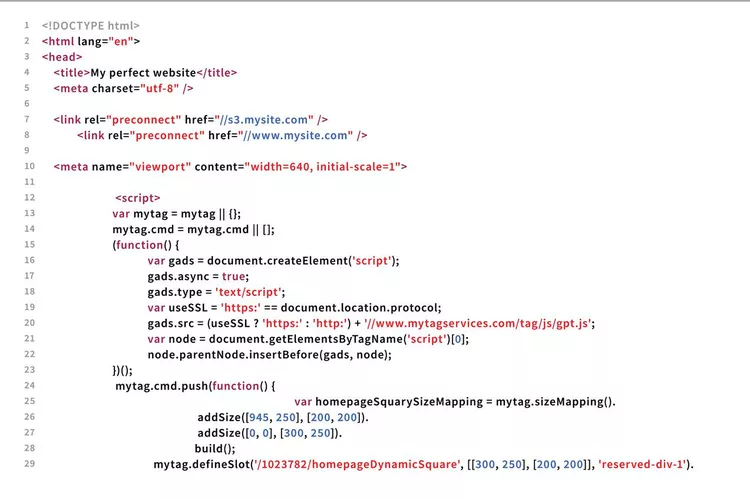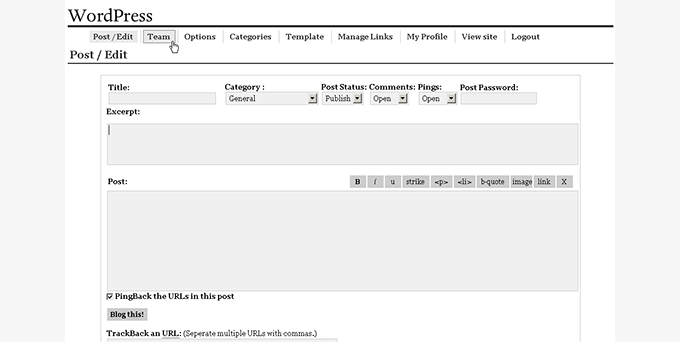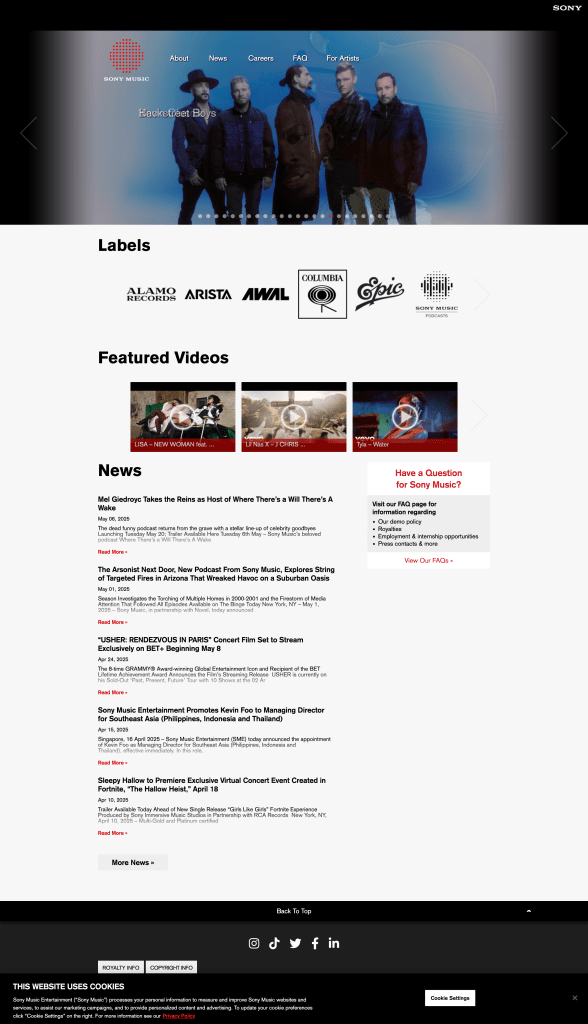Some 20 years ago, at the onset of the information era where everybody is starting to know the internet, developing a website feels like magic. At those times, web developers are called “wizards“.
Unless you know how to code, you need to hire a highly skilled wizard to develop a website for you. These wizards write hundreds of lines of codes that make up the website.

But that was 20 years ago. Today, as technology develops, there are ways in which an average person can develop their own website with no knowledge of coding. One of which is WordPress.
Founded in 2003, WordPress have bridge the gap of average users who want to develop their own website without coding. A once highly technical job can now be handled by a non-coder person. A few drag-and-drop can get you a website.

WordPress, started as a website builder specifically for blogging, has evolved into somewhat a go-to web app that can build all types of websites: personal website, real estate, booking website, services website, online store, etc.

While WordPress is powerful and user-friendly, getting a professional-looking website quickly often requires expert help. I will explain later, despite a non-tech person can get his hands on WordPress, why getting a professional help is more helpful for you.
Read on and learn how you can step in when handling a WordPress website, how it’s perfect for your business and why professional help can save you time and effort.
What is WordPress?
In the strictest sense, a nerd would say that WordPress is Content Management System, CMS in short. CMS is a software platform that allows someone, without technical knowledge, to create, edit or change content on a website.
WordPress is also called by some as a web app or a web builder.
Decades ago, changing content on a website means going over the web files, and then change, delete or add some line of codes – a highly technical and cumbersome job to do.
But now, CMS provides an intuitive interface for people who don’t know how to code to easily edit or add content on their website such as text, images, videos and more. Few clicks here and there and the content will be at your website in no time.
At today’s age, there are a lot of CMS out there. However, WordPress gets the largest portion of the pie in terms of websites using the platform. According to W3Techs, 43.1% of all the websites on the internet are powered by WordPress. That’s around 500 million websites!
Beware! wordpress.com and wordpress.org
Before you open another tab on your browser and type “get wordpress”, there is something in the air that we need to clear.
As you go over and do further research, it’s definite that you’ll come across two WordPress with different TLDs – .com and .org. This part of the blog helps you get out of confusion. By clearing this, it will help you decide the right path to make the right website.


While both platforms are related to WordPress and from the single entity, they serve different purposes.
wordpress.org is the self-hosted version of WordPress. It’s an open-source platform where you can build your website. Meaning, the web core files are open to the public and deployable in your own web hosting server. By getting your website through wordpress.org, you have complete ownership and control over your website. Meaning, you can customize it and you’re free on how to make money out from your website.
To make wordpress.org work, you need to purchase your own hosting and domain name. You are also responsible for the updates, backups and security. WordPress.org is best for businesses and developers who want full control over their website and are comfortable managing technical aspects or hiring web developers specializing in WordPress.
Let’s go to wordpress.com, a hosted platform that uses WordPress. This means, when you acquire a website from wordpress.com, it handles the hosting for you. It’s an almost done-for-you website.
The key feature of wordpress.com is its ease of use. One does not worry about hosting, backups or security as WordPress does it for you. It clears the way from technical aspects of developing a website and gets it up in no time.
However, its customizations are limited unless you opt for paid plans. For the free plan, you only get a wordpress.com sub-domain and you get to see some ads run by WordPress. A website run on wordpress.com also has monetization restrictions. If you want a basic and hassle-free website, it’s best to use wordpress.com.
Why Should You Use WordPress?
The reason over 500 million websites use WordPress is that it’s supremely cheap and time-efficient in terms of development. Since it’s an open-source software, you can get it for free. Once you purchase your domain and hosting, you can put your website live in no time. Comparing to custom-built websites, it’s an affordable way to get your own website up and running.
Websites powered by WordPress are also scalable as business grows. With its flexibility and user-friendly modifications, WordPress grows its popularity among small and medium businesses.
Moreso, because a lot of businesses use WordPress, Google can recognize if it ran one website. Because of this, Google ranks your website in favor of other CMS or custom-built website, making your website more visible online.
Not only that, throughout the years as WordPress has evolved into what it is right now, it created groups or communities of people that help each other navigate the WordPress-verse. This has created thousands of free resources and tutorials that will help you manage your website effectively.
Here comes the myth: “WordPress is Easy and Instant,”
There have been a lot of promises made around the internet on how user-friendly and easy it is to build, manage, and maintain a WordPress site. Because of this, WordPress grows its popularity in the belief that many people can now manage and build their own website.
Contrary to popular belief, it’s not as easy as they made it appear. The promise of a user intuitive and drag-and-drop features is not what it seems. The relationship between WordPress and a non-tech person is a meet-me-in-the-middle thing. Although WordPress is designed in such a way that they put a non-tech person in mind along the way as much as possible, it’s not entirely a hands-off thing.
While WordPress simplifies processes at a certain degree, a user still needs to understand basic web development principles, design psychology, WordPress settings and custom configurations. Users need to invest some time and effort to learn the basics like the WordPress dashboard, installing and configuring plugins and basic understanding of search engine optimization and web performance.
Many beginners expect to create a professional website quickly and easily with WordPress, only to find out the overwhelming tasks in front of them. Often, it comes as a realization to users that building a website needs more involvement and anticipation. First, the initial set-up like the hosting and domain needs a level of expertise. Second, creating a professional and polished website takes time and experience.
This often leads to frustration.
Although WordPress is user friendly and an average user can create and change content, it’s not a magic button for instant result. Think of it as a power tool, not a total replacement for web devs and designers.
DIY WordPress vs. Professional Help
When a business owner wants to take care of things on his/her own, say, developing a website, he/she needs to understand that the learning curve is steep. Unless a business owner has prior experience in building a website, he/she undergoes a series of trial and error to achieve desired results.
By doing DIY WordPress websites, an inexperienced user has the chance to create a slow, insecure or poorly designed websites. Without proper knowledge of optimization, security practices and design principles, this will lead to performance issues, vulnerabilities, or poor user experience.
Remember, there’s more to it than it meets the eye.
Although an average user can normally build a website on its own, it involves certain technical details that are not immediately visible.
If time is not of the essence and you’re still trying to experiment around, DIY WordPress is best for you. It saves you money and making it on your own means you’re more involved and knowledgeable about what’s going on with your website.
Hiring a professional help is for someone who is busy to look after their website. If a business owner has a lot on his plate and his/her hands are full, then getting a web dev is something that one can consider. By getting a WordPress pro, not only you are hiring them for building a website, they also bring in their experience and expertise. Therefore, you can get a custom design that separates from the generic templates.
Pros can also implement advance functions in your website that an average person cannot. They can also build more security and implement best practices in web development.
If your focus is to run a business and website is just one of the many tools that you use, hiring a WordPress developer is a more practical approach.
As a business owner, reflect on whether doing a WordPress website on your own or hiring a professional help benefits your business. There is no right or wrong with DIY WordPress and hiring a professional help. Each has its pros and cons.
Conclusion
WordPress is a revolutionary tool for developing a website. Web content can now be added and edited as easy as drag and click, eliminating the need to code, a skill that needs time to practice and learn. Although WordPress is powerful, it’s not always easy to adapt to beginners. But, once you know the ropes, it’s rewarding as it makes the website managing straightforward.
I’ve seen a lot of websites born in this world that, when handed to their owners, are manageable and easy to navigate. The popular practice in the digital industry is that professionals get to develop the website, then educate their owners on how to use the website and finally it’s now in the hands of their owners, in full control.
Professional handling of your website in the development phase helps you save time, avoids you from frustration, and achieves a quality designed website.
When deciding on how you want your website done, the key is to determine your time, budget and skills to develop a website. Sit down and think about what matters to you at the moment. Is the website the biggest factor to make your business run or can it wait for a while? Is having a website critical for your business operations? Is time an important factor at the moment? Do you have time to learn it on your own?
Factor things that matter to you before getting to your first step.
